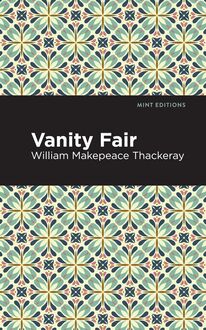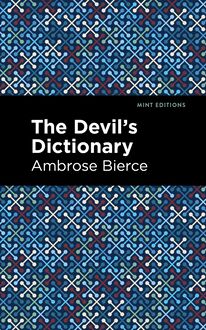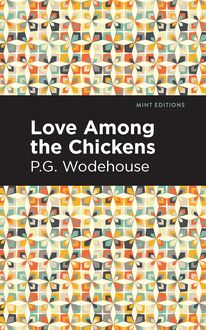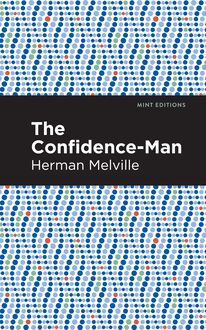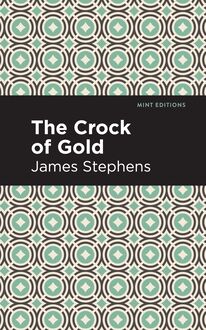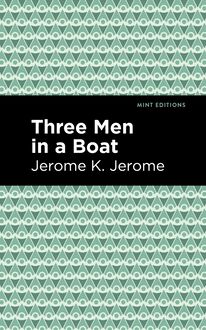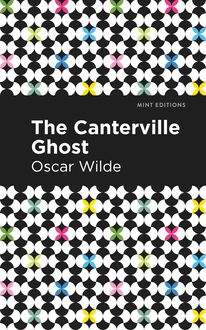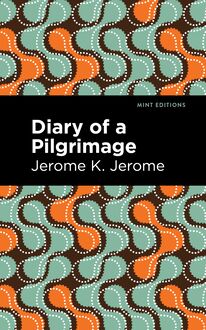-
 Univers
Univers
-
 Ebooks
Ebooks
-
 Livres audio
Livres audio
-
 Presse
Presse
-
 Podcasts
Podcasts
-
 BD
BD
-
 Documents
Documents
-
- Cours
- Révisions
- Ressources pédagogiques
- Sciences de l’éducation
- Manuels scolaires
- Langues
- Travaux de classe
- Annales de BEP
- Etudes supérieures
- Maternelle et primaire
- Fiches de lecture
- Orientation scolaire
- Méthodologie
- Corrigés de devoir
- Annales d’examens et concours
- Annales du bac
- Annales du brevet
- Rapports de stage
La lecture à portée de main
Vous pourrez modifier la taille du texte de cet ouvrage
Découvre YouScribe en t'inscrivant gratuitement
Je m'inscrisDécouvre YouScribe en t'inscrivant gratuitement
Je m'inscrisEn savoir plus
Vous pourrez modifier la taille du texte de cet ouvrage
En savoir plus

Description
The Jewel Merchants: A Comedy in One Act (1921) is a comic fantasy play by James Branch Cabell. Set in a world where history and fantasy collide, where a loyal Count can rise to defy the Duke he so diligently serves, The Jewel Merchants: A Comedy in One Act is included in a series of novels, essays, and poems known as the Biography of the Life of Manuel. “Am I to be welcomed merely for the sake of my gems? You were more gracious, you were more beautifully like your lovely name, on the fortunate day that I first encountered you … only six weeks ago, and only yonder, where the path crosses the highway. But now that I esteem myself your friend, you greet me like a stranger.” Roaming the hills on the outskirts of Florence, Graciosa, the lovely daughter of Balthazar Valori, encounters the jewel merchant Guido. Examining his wares, she is drawn to a magnificent set of pearls intended for Count Eglamore, a man who informed on her cousin Cibo, a man her family has sworn an oath to kill. Set in a fictionalized Tuscany of the Renaissance era, The Jewel Merchants: A Comedy in One Act is a captivating tale of jealousy, revenge, and the lengths to which a man will go for love. Cabell’s work has long been described as escapist, his novels and stories derided as fantastic and obsessive recreations of a world lost long ago. To read The Jewel Merchants: A Comedy in One Act, however, is to understand that the issues therein—the struggle for power, the unspoken distance between men and women—were vastly important not only at the time of its publication, but in our own, divisive world. With a beautifully designed cover and professionally typeset manuscript, this edition of James Branch Cabell’s The Jewel Merchants: A Comedy in One Act is a classic of fantasy and romance reimagined for modern readers.
Sujets
Informations
| Publié par | Mint Editions |
| Date de parution | 03 août 2021 |
| Nombre de lectures | 0 |
| EAN13 | 9781513297255 |
| Langue | English |
| Poids de l'ouvrage | 1 Mo |
Informations légales : prix de location à la page 0,0250€. Cette information est donnée uniquement à titre indicatif conformément à la législation en vigueur.
Extrait
The Jewel Merchants
A Comedy in One Act
James Branch Cabell
The Jewel Merchants: A Comedy in One Act was first published in 1921.
This edition published by Mint Editions 2021.
ISBN 9781513295756 | E-ISBN 9781513297255
Published by Mint Editions®
minteditionbooks.com
Publishing Director: Jennifer Newens
Design & Production: Rachel Lopez Metzger
Project Manager: Micaela Clark
Typesetting: Westchester Publishing Services
C ONTENTS The Author’s Prologue Original Cast Begin Reading
T HE A UTHOR ’ S P ROLOGUE
Prudence urges me here to forestall detection, by conceding that this brief play has no pretension to “literary” quality. It is a piece in its inception designed for, and in its making swayed by, the requirements of the little theatre stage. The one virtue which anybody anywhere could claim for The Jewel Merchants is the fact that it “acts” easily and rather effectively.
And candor compels the admission forthwith that the presence of this anchoritic merit in the wilderness is hardly due to me. When circumstances and the Little Theatre League of Richmond combined to bully me into contriving the dramatization of a short story called Balthazar’s Daughter , I docilely converted this tale into a one-act play of which you will find hereinafter no sentence. The comedy I wrote is now at one with the lost dramaturgy of Pollio and of Posidippus, and is even less likely ever to be resurrected for mortal auditors.
It read, I still think, well enough: I am certain that, when we came to rehearse, the thing did not “act” at all, and that its dialogue, whatever its other graces, had the defect of being unspeakable. So at each rehearsal we—by which inclusive pronoun I would embrace the actors and the producing staff at large, and with especial (metaphorical) ardor Miss Louise Burleigh, who directed all—changed here a little, and there a little more; and shifted this bit, and deleted the other, and “tried out” everybody’s suggestions generally, until we got at least the relief of witnessing at each rehearsal a different play. And steadily my manuscript was enriched with interlineations, to and beyond the verge of legibility, as steadily I substituted, for the speeches I had rewritten yesterday, the speeches which the actor (having perfectly in mind the gist but not the phrasing of what was meant) delivered naturally.
This process made, at all events, for what we in particular wanted, which was a play that the League could stage for half an evening’s entertainment; but it left existent not a shred of the rhetorical fripperies which I had in the beginning concocted, and it made of the actual first public performance a collaboration with almost as many contributing authors as though the production had been a musical comedy.
And if only fate had gifted me with an exigent conscience and a turn for oratory, I would, I like to think, have publicly confessed, at that first public performance, to all those tributary clarifying rills to the play’s progress: but, as it was, vainglory combined with an aversion to “speech-making” to compel a taciturn if smirking acceptance of the curtain-call with which an indulgent audience flustered the nominal author of The Jewel Merchants … Now, in any case, it is due my collaborators to tell you that The Jewel Merchants has amply fulfilled the purpose of its makers by being enacted to considerable applause,—and is a pleasure to add that this succès d’estime was very little chargeable to anything which I contributed to the play.
For another matter, I would here confess that The Jewel Merchants , in addition to its “literary” deficiencies, lacks moral fervor. It will, I trust, corrupt no reader irretrievably, to untraversable leagues beyond the last hope of redemption: but, even so, it is a frankly unethical performance. You must accept this resuscitated trio, if at all, very much as they actually went about Tuscany, in long ago discarded young flesh, when the one trait everywhere common to their milieu was the absence of any moral excitement over such-and-such an action’s being or not being “wicked.” This phenomenon of Renaissance life, as lived in Italy in particular, has elsewhere been discussed time and again, and I lack here the space, and the desire, either to explain or to apologize for the era’s delinquencies. I would merely indicate that this point of conduct is the fulcrum of The Jewel Merchants .
The play presents three persons, to any one of whom the committing of murder or theft or adultery or any other suchlike interdicted feat, is just the risking of the penalty provided against the breaking of that especial law if you have the vile luck to be caught at it: and this to them is all that “wickedness” can mean. We nowadays are encouraged to think differently: but such dear privileges do not entitle us to ignore the truth that had any of these three advanced a dissenting code of conduct, it would, in the time and locality, have been in radical irreverence of the best-thought-of tenets. There was no generally recognized criminality in crime, but only a perceptible risk. So must this trio thriftily adhere to the accepted customs of their era, and regard an infraction of the Decalogue (for an instance) very much as we today look on a violation of our prohibition enactments.
In fact, we have accorded to the Eighteenth Amendment almost exactly the status then reserved for Omnipotence. You found yourself confronted by occasionally enforced if obviously unreasonable supernal statutory decrees, which every one broke now and then as a matter of convenience: and every now and then, also, somebody was caught and punished, either in this world or in the next, without his ill-fortune’s involving any disgrace or particular reprehension. As has been finely said, righteousness and sinfulness were for the while “in strange and dreadful peace with each other. The wicked man did not dislike virtue, nor the good man vice: the villain could admire a saint, and the saint could excuse a villain, in things which we often shrink from repeating, and sometimes recoil from believing.”
Such was the sixteenth-century Tuscan view of “wickedness.” I have endeavored to reproduce it without comment.
So much of ink and paper and typography may be needed, I fear, to remind you, in a more exhortatory civilization, that Graciosa is really, by all the standards of her day, a well reared girl. To the prostitution of her body, whether with or without the assistance of an ecclesiastically acquired husband, she looks forward as unconcernedly as you must by ordinary glance out of your front window, to face a vista so familiar that the discovery of any change therein would be troubling. Meanwhile she wishes this sorrow-bringing Eglamore assassinated, as the obvious, the most convenient, and indeed the only way of getting rid of him: and toward the end of the play, alike for her and Guido, the presence of a corpse in her garden is merely an inconvenience without any touch of the gruesome. Precautions have, of course, to be taken to meet the emergency which has arisen: but in the dead body of a man per se , the lovers can detect nothing more appalling, or more to be shrunk from, than would be apparent if the lifeless object in the walkway were a dead flower. The thing ought to be removed, if only in the interest of tidiness, but there is no call to make a pother over it.
As for our Guido, he is best kept conformable to modern tastes, I suspect, by nobody’s prying too closely into the earlier relations between the Duke and his handsome minion. The insistently curious may resort to history to learn at what price the favors of Duke Alessandro were secured and retained: it is no part of the play.
Above all, though, I must remind you that the Duke is unspurred by malevolence. A twinge of jealousy there may be, just at first, to find his pampered Eglamore so far advanced in the good graces of this pretty girl, but that is hardly important. Thereafter the Duke is breaking no law, for the large reason that his preference in any matter is the only law thus far divulged to him. As concerns the man and the girl he discovers on this hill-top, they, in common with all else in Tuscany, are possessions of Duke Alessandro’s. They can raise no question as to how he “ought” to deal with them, for to your chattels, whether they be your finger rings or your subjects or your pomatum pots or the fair quires whereon you indite your verses, you cannot rationally he said to “ow
-
 Univers
Univers
-
 Ebooks
Ebooks
-
 Livres audio
Livres audio
-
 Presse
Presse
-
 Podcasts
Podcasts
-
 BD
BD
-
 Documents
Documents
-
Jeunesse
-
Littérature
-
Ressources professionnelles
-
Santé et bien-être
-
Savoirs
-
Education
-
Loisirs et hobbies
-
Art, musique et cinéma
-
Actualité et débat de société
-
Jeunesse
-
Littérature
-
Ressources professionnelles
-
Santé et bien-être
-
Savoirs
-
Education
-
Loisirs et hobbies
-
Art, musique et cinéma
-
Actualité et débat de société
-
Actualités
-
Lifestyle
-
Presse jeunesse
-
Presse professionnelle
-
Pratique
-
Presse sportive
-
Presse internationale
-
Culture & Médias
-
Action et Aventures
-
Science-fiction et Fantasy
-
Société
-
Jeunesse
-
Littérature
-
Ressources professionnelles
-
Santé et bien-être
-
Savoirs
-
Education
-
Loisirs et hobbies
-
Art, musique et cinéma
-
Actualité et débat de société
- Cours
- Révisions
- Ressources pédagogiques
- Sciences de l’éducation
- Manuels scolaires
- Langues
- Travaux de classe
- Annales de BEP
- Etudes supérieures
- Maternelle et primaire
- Fiches de lecture
- Orientation scolaire
- Méthodologie
- Corrigés de devoir
- Annales d’examens et concours
- Annales du bac
- Annales du brevet
- Rapports de stage

